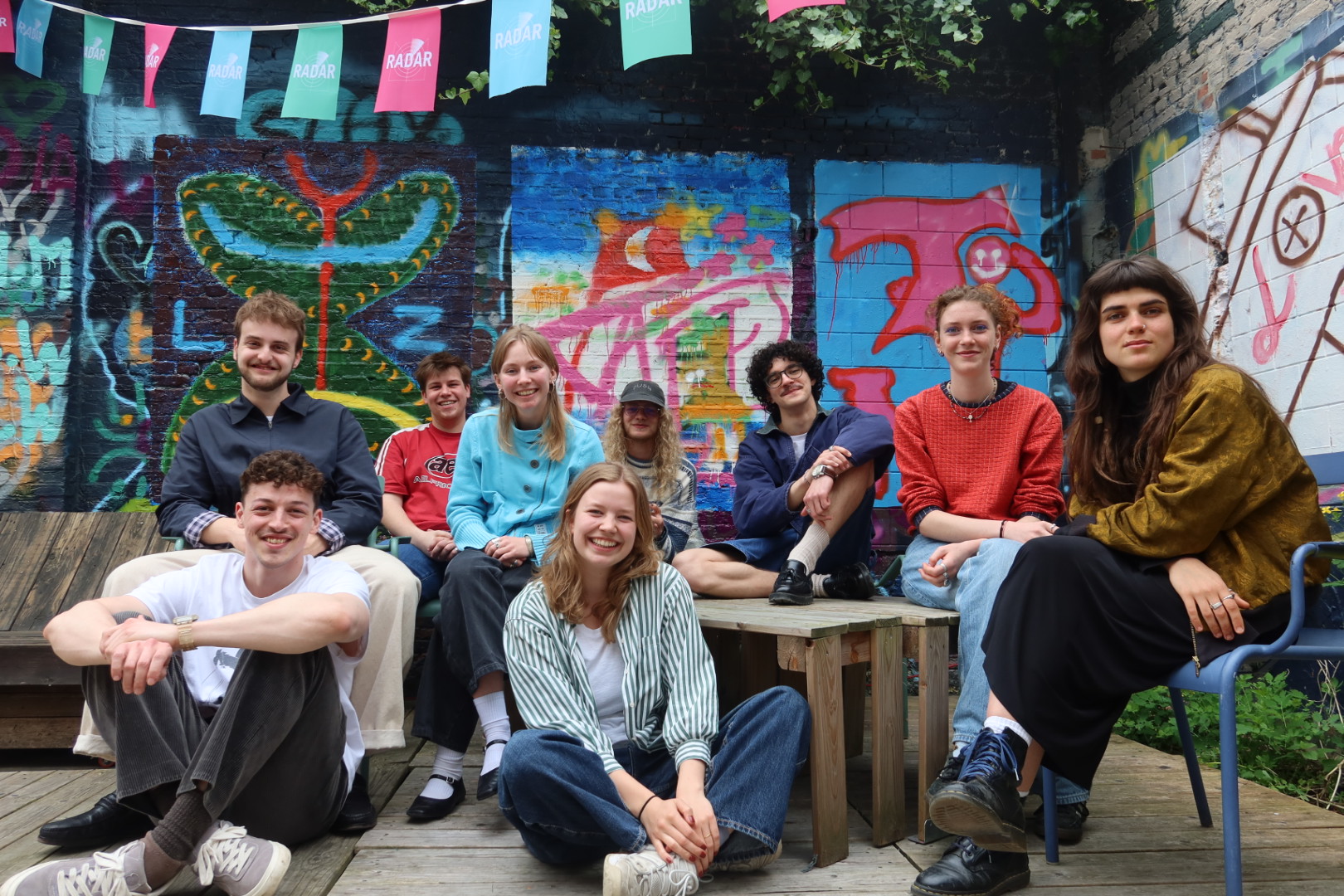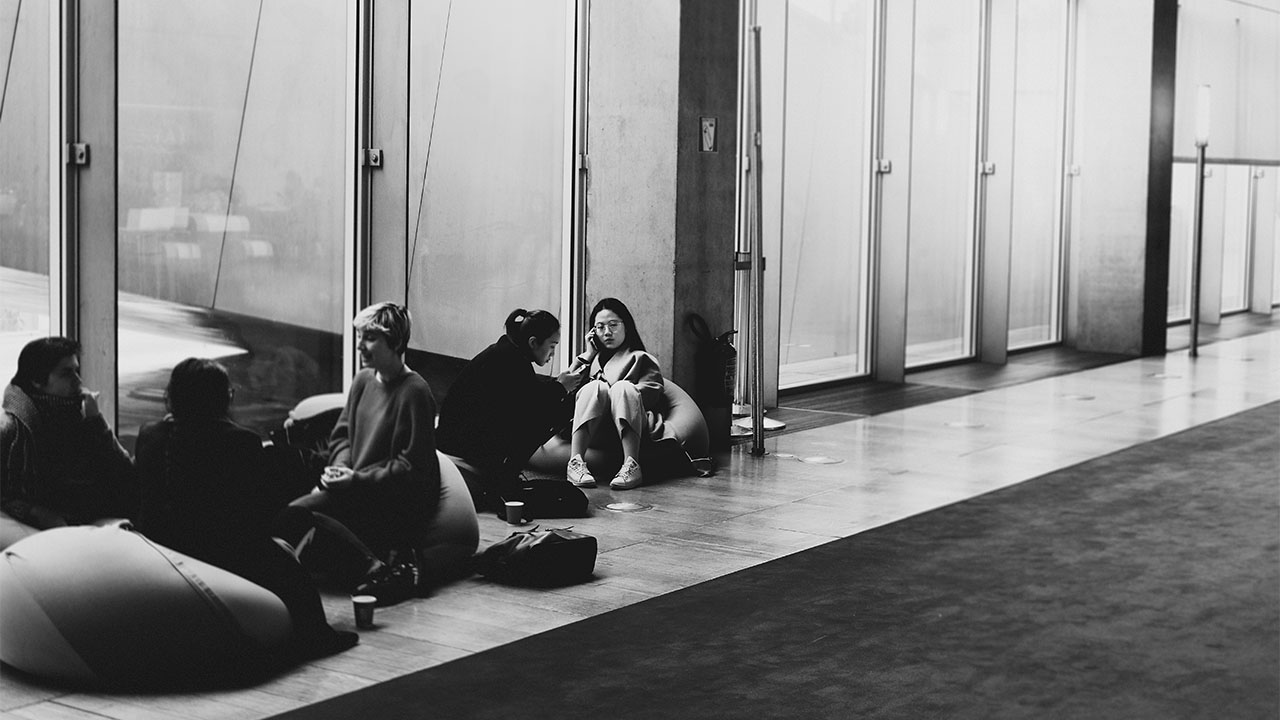Region / Country: Europe
France
Germany
Ukraine
Albania
Europe
A new 40-week prayer initiative from IFES Europe
Europe, the region which once claimed many of the strongest evangelical nations in the world, now has some of the lowest rates of evangelical Christianity: Greece 0.4%, Poland 0.3%, Slovenia 0.1%. The overall average for a country in Europe is just 3%.
The statistics are sobering. But IFES Europe longs to see revival in this generation. In its students. In its universities. In its nations. That’s why last month they launched a 40-week prayer initiative. In the months leading up to Revive, the European student evangelism conference, students in 40 European countries are making short videos to fuel people’s prayers: What are the marks of their society today? What are the idols of young people in their generation?
The video highlights cities across the Belgian regions of Flanders, Wallonia and Brussels, and the role of prestige, pessimism and secularism in the country today.
Join us as we pray for revival to come in Belgium and across Europe:
- Pray for revival in Antwerp, Kortrijk, Brussels, Louvain-la-Neuve, Namur and Gent.
- Pray that Christian students in Belgium would stand against the idols of their country. Pray that they would be agents of transformation on their campuses and in society.
- Pray that the Revive conference in December would be a catalyst for revival in Europe in this generation of students.Pray for the preparations under way.
- Pray that this prayer campaign would inspire many people to pray for Europe over the coming months.
Thanks for praying with us!
Europe needs to know Jesus!
Priscilla was one of 1,700 students. She had come with her friends from GBU Italy to join students from 47 other countries. This was IFES Europe’s student evangelism conference, Presence, held at Easter 2017. Almost two years on, we asked her to reflect on the long-term impact of being at Presence. She shared her reflections:
Priscilla’s story
“I was expecting a wonderful experience. But not something that inspirational. Both for me and for my IFES group (GBU) in Milan.
It was amazing to experience a connection with other students as we prayed together in different languages. And it was amazing to see how big IFES is — to realise that we are involved in a huge international project.

But one stand-out moment for me was hearing a man share his testimony on the last night. He had grown up in a Muslim family in the Middle East. As part of his study, he spent a few months in France as an international student. There he had met some Christian students and started reading the Bible with them. Just three weeks before he left France, he gave his life to Christ.
That man now works with IFES students in the Middle East.
After hearing his story, I felt convinced that we need to make more of the opportunities we have to reach international students. We are used to praying for missionaries all over the world, but what about the hundreds of international people around us? They need to know Jesus! And they can be a powerful testimony in their own communities when they go back. The time they spend in our country might be short, but it could be enough.
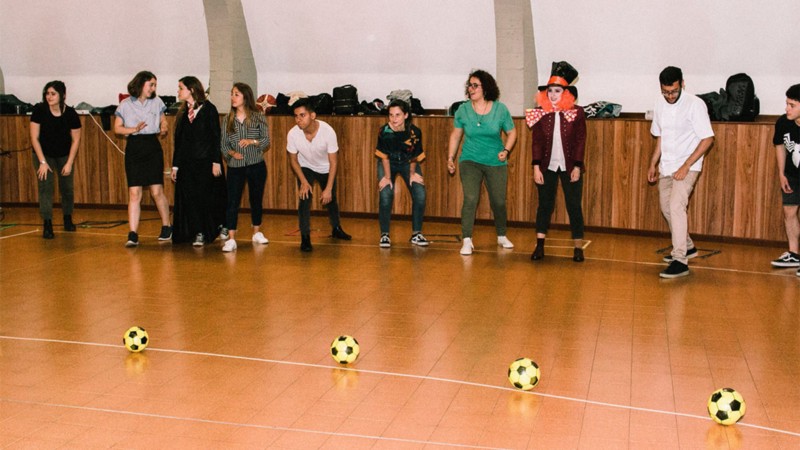
A new heart
My friends and I came back from Presence spiritually charged, full of ideas and with a new heart for international students. Since then we’ve started having Bible studies in English as well as Italian. In my university we have a lot of international students — mostly from China, India, Pakistan, South America and other countries in Europe. They are from different religious backgrounds. Generally, we find that they don’t know much about Christianity, but they are more open to speaking about spiritual matters than our Italian friends. Sometimes their questions surprise me. They are curious. Talking about our souls and our sin is not weird to them.
Before Presence I was interested in international students, but I was scared because of the language barrier and I wasn’t sure what approach to take. After Presence we decided not to worry about those things. Our English is not perfect and our Bible studies are not always the best. But the important thing is to make the international students feel loved and welcome.
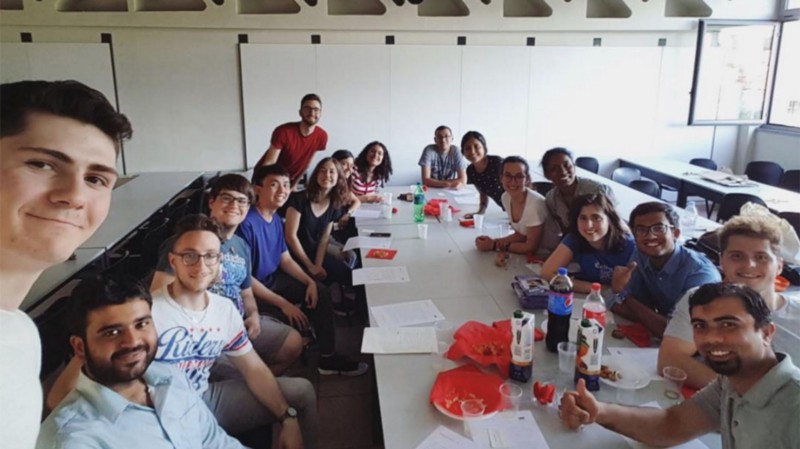
We’ve started hosting evangelistic events each month — usually themed parties, like The 1950s, Pizza, Movie Night, The South of Italy… We’re learning to have someone there to translate everything into English, and we’re trying to think about how to manage food, games, music and a presentation of the gospel in the most effective way. Sometimes we’ve had up to 60 students! We’ve also gone out to meet students on campus. Now we’re working to create a little guide about how to survive at university here, which includes some information about GBU.
An adventure worth having
To IFES groups that haven’t yet started engaging with international students I would say to risk it because it’s really worth it. It’s a great opportunity to discover other cultures and to test your faith. Pray for your universities and let yourselves be amazed!
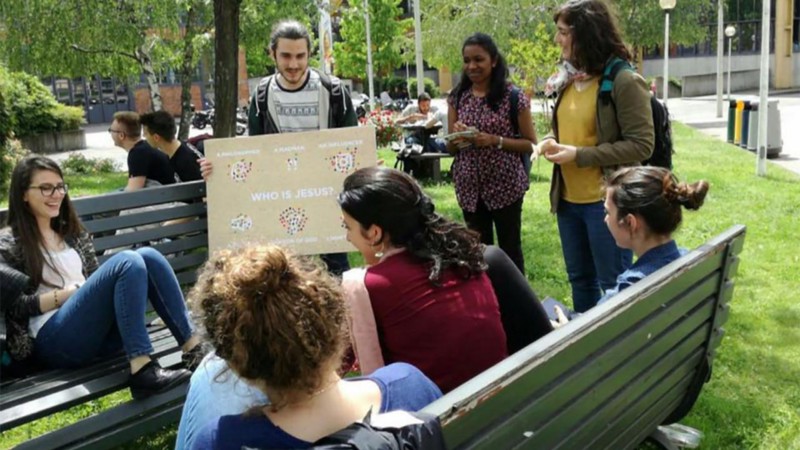
And to IFES students in Europe who are considering going to the next European Evangelism Conference, Revive, I would say, GO! When we came back home we realised how much Presence had joined us together as a group. It made us a real team with the same goal and the same vision, the same love for students. Presence was an adventure and gave us stories that we still tell today.”
Introducing: Revive
The impact of Presence was felt across the whole region, as students fell more in love with Jesus and caught the vision for sharing Him on campus. Many mission weeks happened in new cities as a result of Presence. But IFES Europe still longs for more. It longs to see revival. In its Christian students. In its universities. In its nations. Revive, the next European evangelism conference, is taking place in Germany, 27 December 2019–1 January 2020.
- To book your place or find out more go to: reviveeurope.org
- Join the 40 weeks of prayer for revival in Europe: ifes.world/prayforeurope
Remembering Michael Green (1930-2019)
Michael Green passed away on Wednesday 6 February 2019 at the age of 88. Michael had been actively involved in Christian ministry for nearly 70 years as a church minister, author, theologian and international evangelist. He had spoken at hundreds of mission weeks around the world, particularly across Europe and Eurasia. This gifted, godly man leaves behind a remarkable legacy.
A heart for global mission
Michael was a huge supporter of IFES and over the years partnered with a number of IFES movements around the world. He was not afraid to go to places hostile to the gospel to speak at evangelistic events. Often it was his impressive academic credentials that opened closed doors into the university and gave him a platform to preach the gospel. Even in such places, Michael had great confidence in the power of the gospel to save and transform, and many students came to faith through his ministry.
IFES Regional Secretary for Europe, Tor Erling Fagermoen, shared:
“I have prayed today that God will raise up more people like Michael in all countries in Europe, who can be energetic, Christ-loving, gracious, intelligent and impatient to see new people coming to faith. What an example Michael was; what a giant. Let the mantle multiply!”
Investing in the next generation
Michael was also passionate about investing in young evangelists across Europe and Eurasia. One of the ministries he was particularly involved in was FEUER (Fellowship of Evangelists in the Universities of Europe), a joint initiative of IFES and UCCF that seeks to train and equip evangelists for mission in the university context. Michael spoke of how it was one of his greatest joys and encouragements to meet with the FEUER community and hear the reports of university evangelism across the region.
Evangelist Michael Ots, who is also involved in the FEUER network and has partnered with Michael Green at numerous mission week events over the years, wrote:
“Today Michael Green went to be with Jesus. What a welcome awaited him as he met face to face with the One he has known, loved and preached for 70 years. I will miss him very deeply. He has been far more than just a mentor, whose example has shaped my ministry perhaps more than any other – but also a close friend and such a faithful encourager.”
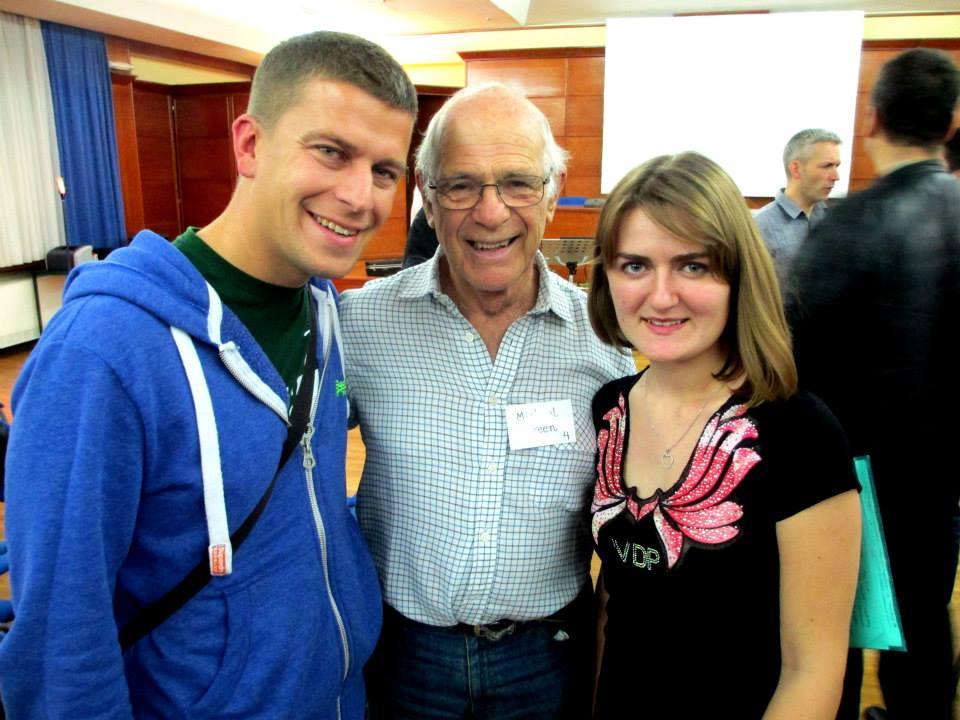
CCX Ukraine staff worker Marina Gnatyshyna is one of the young evangelists who has been trained through FEUER. She writes:
“Michael Green has left a permanent footprint in my life and others. I met him for the first time as a student at a mission in Exeter. He and Michael Ots encouraged us to start doing mission weeks in Kyiv where, lately, both of them came as speakers. Since then we’ve held mission weeks every year.”
Facing death with resurrection hope
Michael never really retired. At the age of 88, he was due to speak at a university mission week in the UK just days before he died. Ill health prevented him from attending, but the transcript for his talk was shared in advance. His timely words demonstrate the confident hope with which he faced his death:
“If Jesus is raised from the dead, and if He promises that His followers will share His life after their death, that changes everything. I am a lot nearer death at 88 years old than any of you. But I can honestly say that I am looking forward to being with Christ in this further dimension of life after death. The solid historical fact of Jesus’ resurrection convinces me that I am not kidding myself but that, as the apostle Paul once put it, to depart and to be with Christ is far better.”
Michael’s prayer for students today
Michael was very much a man of prayer and is remembered fondly as one who would often interrupt a conversation to pray. What was his prayer for the student of this generation?
“I pray that in the next ten years there will be a renewed confidence in the power of the gospel, a new courage to be bold in testimony, in drama, in music, in dance, and in inventing other ways of bringing the gospel home to friends. And that confidence of course comes from going back to the cross again and again, and realising what the Lord has done for us. And if He’s done it for us, He’s done it for others. So woe to us if we don’t proclaim the gospel.”
Join us in thanking God for Michael’s faithful and fruitful ministry in the university over his lifetime, and for the many young people who have indeed found a renewed confidence in the power of the gospel through him.
The challenges of student ministry in a Catholic culture
Christian students in Slovakia are not welcome to meet on campus. In this predominantly Roman Catholic country, evangelical Christianity is thought of as a cult. Last term the group in Prešov were finally offered a space to meet. But the ‘room’ has no door, no chairs, no furniture. Students must carry chairs from their dormitories. They use cardboard boxes from shops for tables. It’s an exhausting set-up-set-down routine each week.
But still they are praising God for the way the universities have opened up. Just 20 years ago, all Christian activities on campus were forbidden; participation would lead to students being expelled. Today, there are many non-Christians coming along regularly, gathering around cardboard boxes to study the Bible and find out about Jesus. Even though the movement is small, they are hoping to put on a mission week in March to reach even more with the good news.
They asked us to join with them in prayer:
- Pray that the university authorities would show favour to the groups in Prešov and in Košice, and allow them suitable spaces to meet.
- Pray that their mission week can go ahead and that through it, many more students would be able to hear the good news of Jesus.
- Pray that God would give the staff stamina and encouragement in their ministry. Pray that God would provide the finances and personnel for the work to grow – in particular, pray for a general secretary to lead the movement.
- Pray for the student leaders’ training happening in February. Pray that Christian students would be growing in their love for Jesus and would be eager to share Him with their friends.
Thanks for praying with us!
